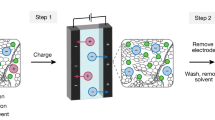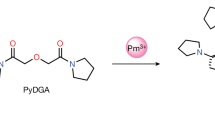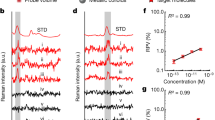Abstract
ONE fundamental difficulty in the hypothesis that oxygen and carbon monoxide are “adsorbed” by hæmoglobin lies in the highly specific nature of the absorption spectrum of the compounds so formed. The change in colour of reduced blood, or of a dilute solution of reduced hæmoglobin, when shaken with air or oxygen, is very obvious to the naked eye, as also is the change when the oxygen is replaced by carbon monoxide. These colour changes can be used, either as in Haldane's method with direct vision, or as in Hartridge's by the spectroscope, for the exact quantitative measurement of the amount of gas taken up. Such remarkable, definite, and highly specific changes in the absorption spectra have no parallel, so far as I am aware, in any well-authenticated case of adsorption (unless the phenomena of electrolytic dissociation be classed as such), and must be explained by any theory, as of course they are by that of a specific chemical change in the nature of hæmoglobin by its combination with gas.
This is a preview of subscription content, access via your institution
Access options
Subscribe to this journal
Receive 51 print issues and online access
$199.00 per year
only $3.90 per issue
Buy this article
- Purchase on Springer Link
- Instant access to full article PDF
Prices may be subject to local taxes which are calculated during checkout
Similar content being viewed by others
Author information
Authors and Affiliations
Rights and permissions
About this article
Cite this article
HILL, A. Adsorption and Hæmoglobin. Nature 111, 843–844 (1923). https://doi.org/10.1038/111843a0
Issue Date:
DOI: https://doi.org/10.1038/111843a0
Comments
By submitting a comment you agree to abide by our Terms and Community Guidelines. If you find something abusive or that does not comply with our terms or guidelines please flag it as inappropriate.



